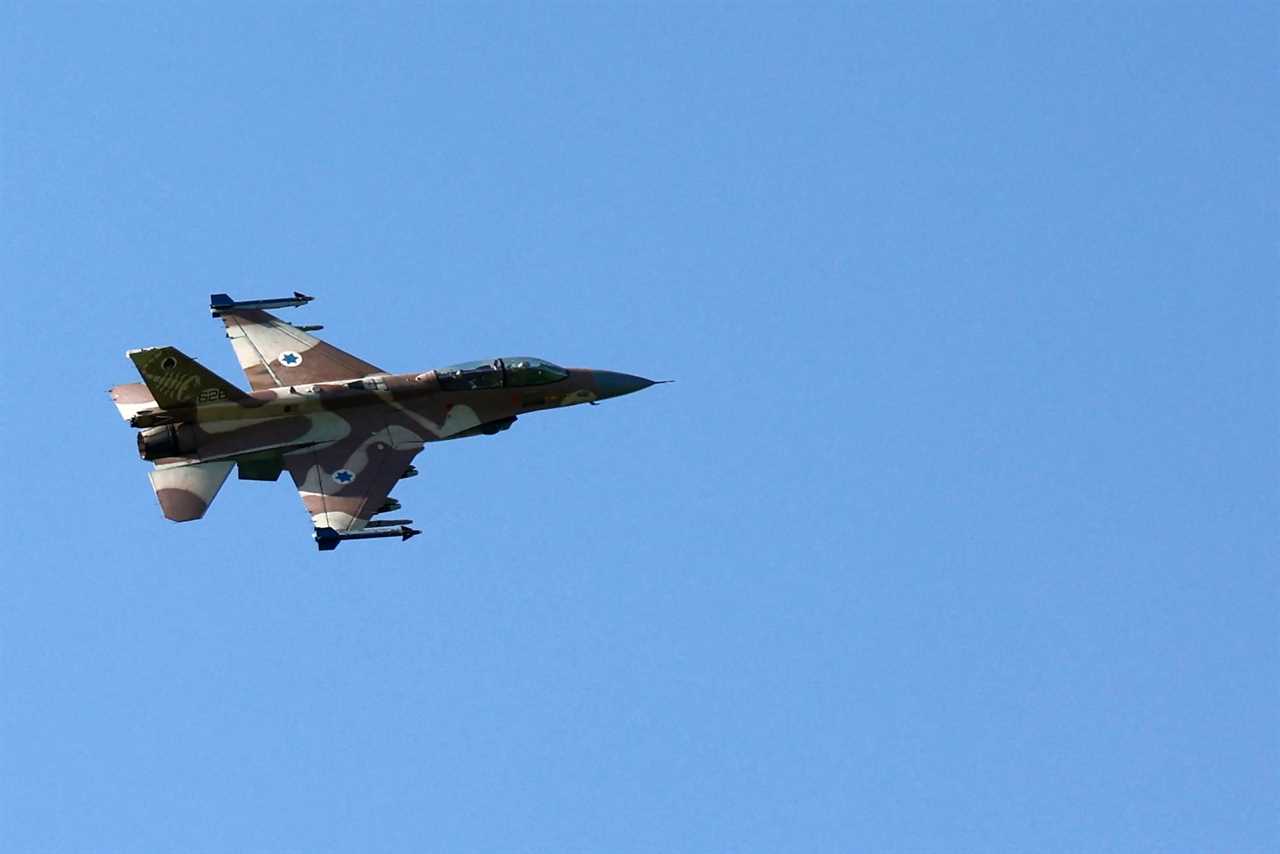AFP via Getty Images
- Israel showed it can take out a key part of Iran's air defenses with a single missile.
- The S-300 damaged is the most advanced air defense system Iran has acquired from Russia.
- Iran must field better air defenses like Russia's S-400 to stand a chance against a barrage.
In the early hours of April 19, Israel sent a message to Iran with an air-launched ballistic missile that took out a critical part of its air defense network: a radar belonging to one of its advanced Russian S-300 missiles.
The Israeli missile scored a direct hit, and the next day Iran tried to cover up the damage with an inferior replacement radar, according to images obtained by the Economist. The incident in the city of Isfahan may force Tehran to upgrade its air defenses, possibly from more advanced Russian systems, to defend itself from the possibility of larger Israeli missile attacks.
"I think it's quite clear that Iran is woefully unprepared for such attacks unless it receives significant help from Russia, which it has failed to do so far," Arash Azizi, senior lecturer in history and political science at Clemson University and author of "The Shadow Commander: Soleimani, the US, and Iran's Global Ambitions," told Business Insider.
"The attacks will also have given valuable operational information to the Iranians in charge of missile defense in that they'll have a better sense of their limits," Azizi said.
Israel is known to possess ballistic missiles it can launch from fighter jets. One example is its 15-foot-long Rampage missile. Weighing 1,200 pounds, the supersonic missile can hit targets up to 186 miles away. Britain has shown interest in buying it.
Freddy Khoueiry, a global security analyst for the Middle East and North Africa at the risk intelligence company RANE, believes it's possible Israel used the Rampage on April 19. However, he noted that missile debris uncovered in neighboring Iraq suggests it was more likely Israel used Blue Sparrow missiles, which have a purported 1,250-mile range.
"Either way, the debris in Iraq and local reports of fighter jet activities over Iraqi airspace that same night suggest Israeli fighter jets possibly fired the missiles from a distance closer to the Iranian borders," Khoueiry told BI.
While Iranian air defenses failed to stop Israel's strike they have hugely improved in recent years. In the early 2000s, Iranian radars couldn't detect American and Israeli drones operating inside Iranian airspace. Even bulky US tankers supporting missions in Afghanistan and Iraq flew over parts of Iranian airspace undetected.

Jalaa Marey/Getty Images
That's all changed. Iran shot down a sophisticated American RQ-4A Global Hawk surveillance drone flying at high altitude in 2019, claiming it used its indigenous 3rd Khordad system.
"For the past few years, Iran has heavily invested in its air defense capabilities but simultaneously knows that it might not be enough against the technologically advanced Israeli or US weapons in a potential conflict," Khoueiry said.
That's one reason Iran has placed its most sensitive installations in mountainous regions.
"I believe the April 19 Isfahan strike will likely make the Iranians think more in terms of countering Israel's radar-evading systems by improving their radar capabilities while continuing to improve their air defenses, especially because we did not see Iran's best air defense equipment on display," Khoueiry said.
The S-300PMU-2 is the most advanced air defense system Iran has acquired from Russia. Following the Isfahan strike, it's likely Tehran will conclude it needs more advanced Russian systems, such as the S-400 they've by some accounts been asking for.
Khoueiry doesn't rule out the prospect of Iran seeking the S-400, given its "more advanced stealth capabilities" and ability to track aircraft at lower altitudes. These capabilities are "crucial" for defending vital Iranian installations, especially given the S-300's failure to intercept Israeli weapons on April 19.
Clemson University's Azizi believes an S-400 acquisition remains "crucial" for Iran and one of its "best bets." Therefore, he anticipates Tehran will continue pushing for it.
"I think the April episode will certainly have convinced Iranians that they need to be more serious about getting help from Russia," Azizi said. "But I think they ultimately have very little leverage unless Moscow wants to play Israel and the West by giving help to Iran."
Iran has a strong card to play. It's become a major supplier of Russia's war against Ukraine via thousands of Shahed loitering munitions and hundreds of short-range ballistic missiles. But this may not be enough.
"Moscow will be the key decision-maker here, not Tehran," Azizi said. "The drone help is important for Moscow but not indispensable."
Iran could have a local solution in the form of indigenous systems, such as the 3rd Khordad that felled a Global Hawk and the Bavar 373.
"Theoretically these Iranian systems should do better than the S-300 given that the Iranians upgraded the Bavar 373 in 2022, claiming that it's now a competitor of the S-400," Khoueiry said. "In practice, this could go either way, depending on the amount of Israeli missiles that would be hypothetically launched and from where."
Khoueiry anticipates that early detection by Iranian air defenses could give these Iranian-made systems "more chances" against Israeli missiles.
Conversely, Azizi believes these systems are "quite unlikely" to fare any better than their Russian counterparts.
"These are impressive systems for Iran to have devised on its own but they are ultimately no match for Israel's significant offensive capabilities," Azizi said.
Read More
By: [email protected] (Paul Iddon)
Title: Israel's strike showed Iran's air defenses were 'woefully unprepared.' Here's what Tehran may do next.
Sourced From: www.businessinsider.com/iran-may-upgrade-its-air-defenses-after-israeli-missile-strike-2024-4
Published Date: Mon, 29 Apr 2024 21:05:28 +0000
Did you miss our previous article...
https://trendinginbusiness.business/business/digital-dialogues-the-next-frontier-for-contact-centers-and-customer-experience
.png)





